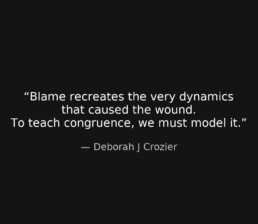Lived Experience Blog
The Nervous System Isn’t Asking Your Permission
It is almost impossible to fully convey the impact of nervous system activation to someone who has never experienced it. What may look, from the outside, like being “over-sensitive,” “attention-seeking,” or “childish” is, on the inside, a state of terror. The person is not reacting to the present…
What Looked Like Nothing, Felt Like Everything
A reflection on trauma responses people don’t see Years ago, I had just started a new job — I’d only been there about a week. One day, I went off to a meeting elsewhere in the building. When I came back, the office I usually worked in was completely closed. The lights were off, the door was locked,…
Beyond Blame: Understanding Incel Identity Through Attachment, Not Outrage
There is a growing concern in education, safeguarding, and mental health fields about the influence of figures like Andrew Tate and others who appeal to boys and young men. It can feel easy — and even comforting — to say the problem starts with these influencers. But when we place the blame solely…
It’s Not “Attention Seeking.” It’s a Nervous System in Survival.
Across education, social care, healthcare, policing, and even politics, there is still a widespread misunderstanding of trauma. Behaviours rooted in survival are often misinterpreted as: “Attention-seeking” “Manipulative” “Excuses” “Lack of discipline” “Bad attitude” And those of us who respond…
The camera doesn’t lie?
“The camera cannot lie, but it can be an accessory to untruth.” — Quote by Harold Evans. Whilst reading through comments left on news items about Epstein, Andrew and Virginia Giuffre the most repeated and applauded opinion is that of Virginia looking happy in the photograph and that equating to…
Guess Who
Those of us of a certain age will remember the board game Guess Who where based on questions about appearance or features we eliminated characters to work out who our opponent was describing, who their mystery person was. I spent many hours playing the game with my cousin, hoping they wouldn’t ask…
The Game
I’ve sat with this since the news about the collapse of the grooming gangs enquiry started to break and the later news about royal family emails and other revelations. I’ve sat with this as I’ve listened to politicians and influential people discuss the world of grooming and exploitation, a world…
Collaboration and Repair: Learning to Stay in the Room When We Get It Wrong
It’s easy to talk about collaboration when everything is going well. It is much harder to stay in collaboration when discomfort, mistakes, and misunderstandings arise. We don’t often speak about that part — the repair. Recently, I was reminded how important repair is when we work with others from a…
When Collaboration Isn’t Collaboration: On Alignment, Authenticity, and the Quiet Politics of Community Work
I’ve been reflecting on a question I was asked recently during a community ‘collaboration hub’ session: “What stops you from collaborating with others?” Around the table, the responses were mostly: Time Funding Capacity Opportunity I listened. Considered. I understood what they meant — but none…
Trauma-Informed Healing Through Nervous System Awareness
Using embodied nervous system attunement to help people recognise, regulate, and return to themselves with dignity and care. My understanding of nervous system states began very early in my life. After a near-death experience as a young child, my body seemed to pay close attention to the world…







